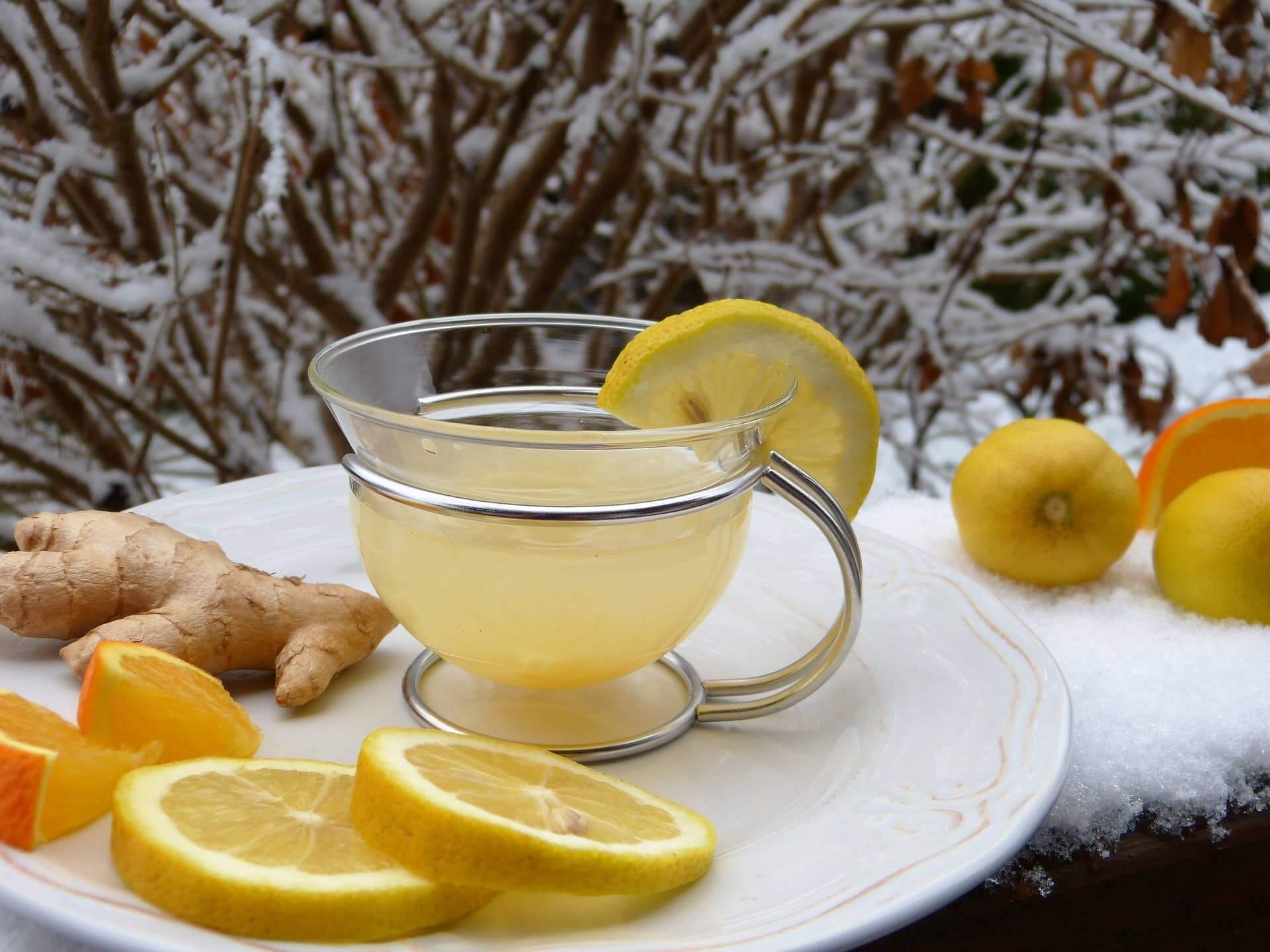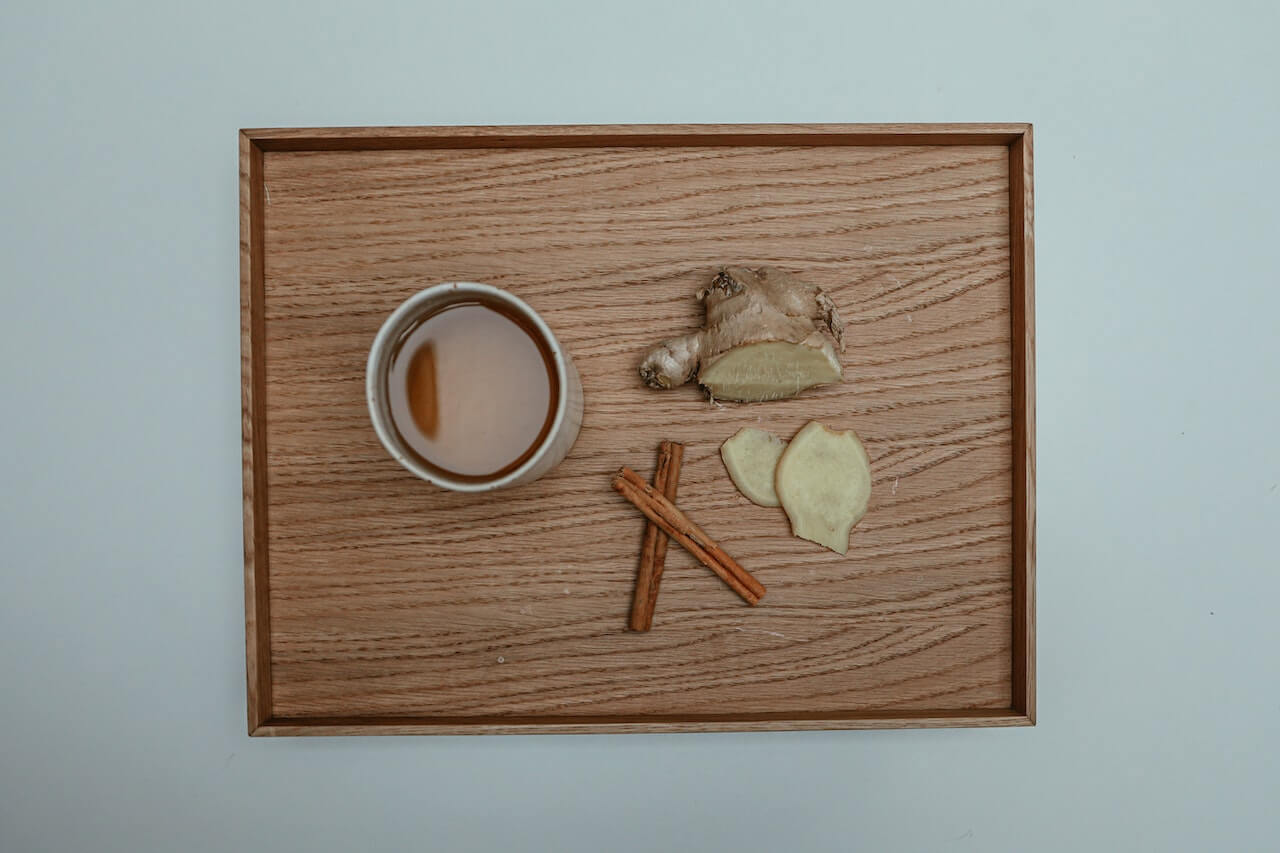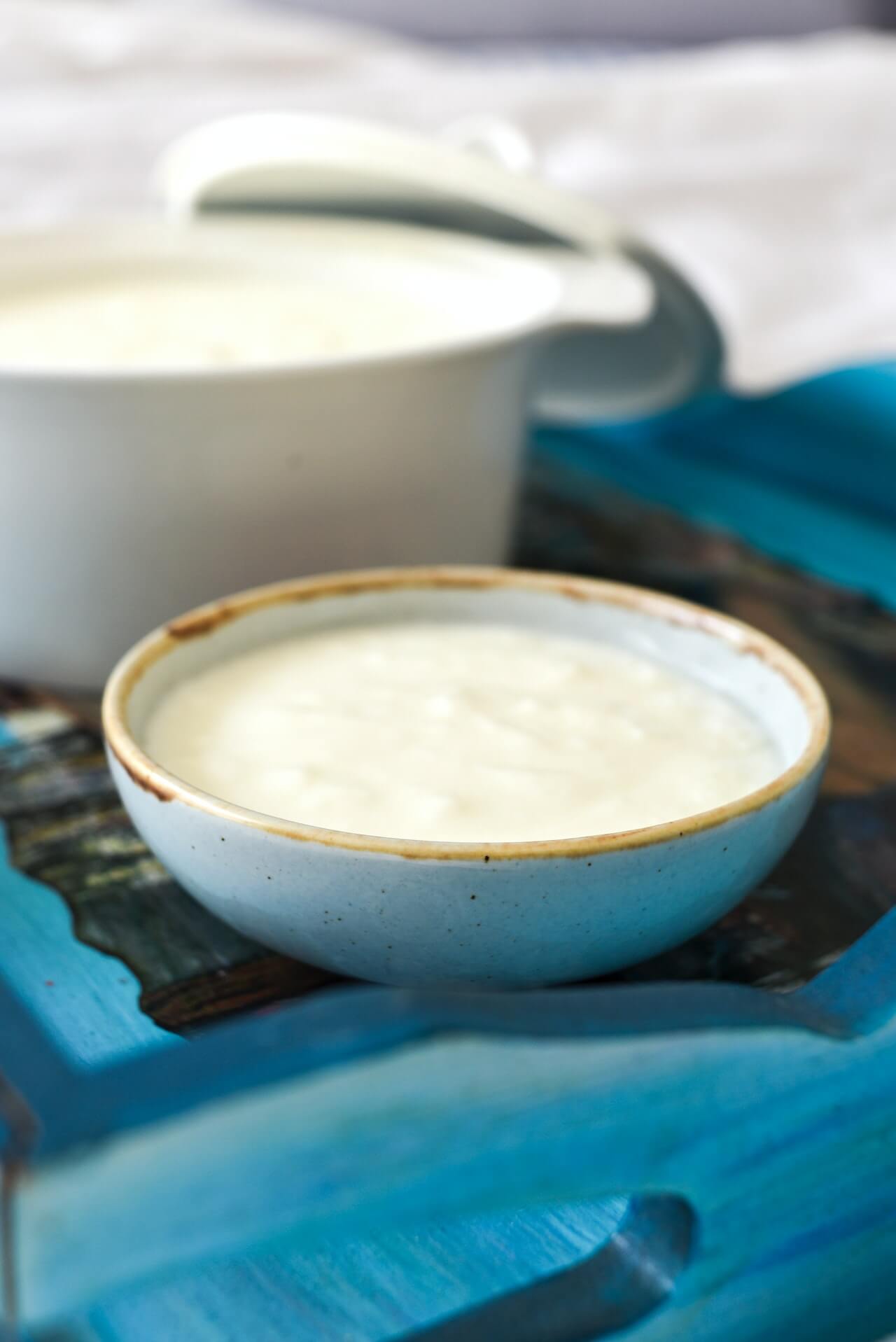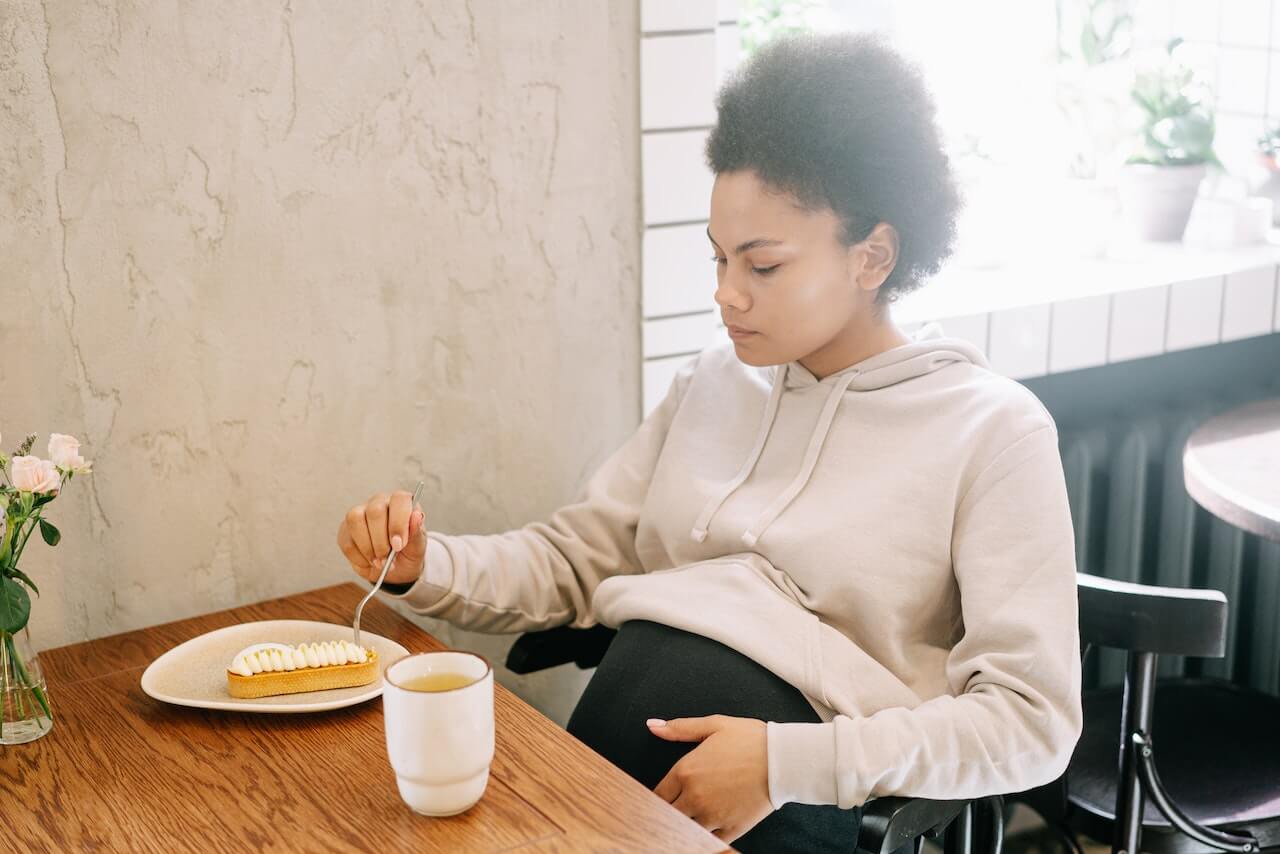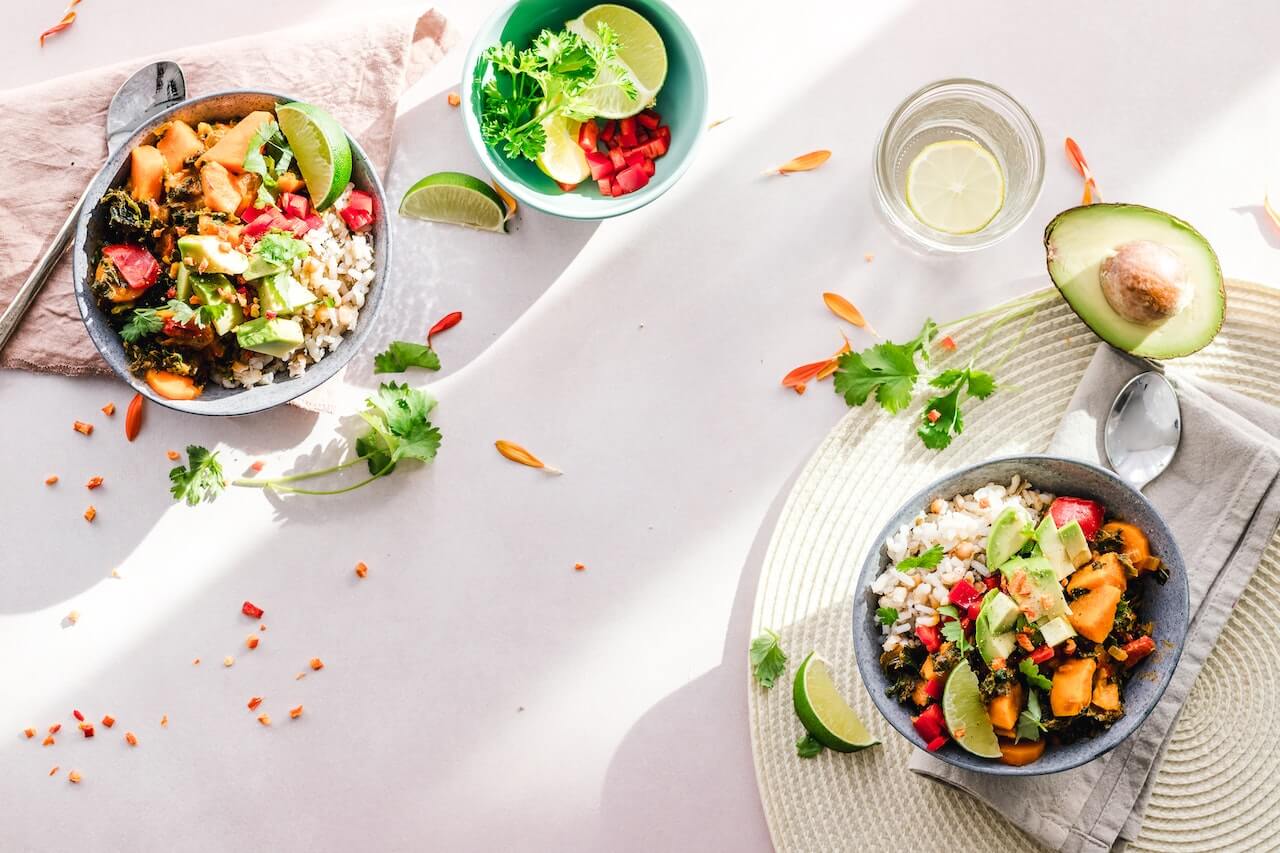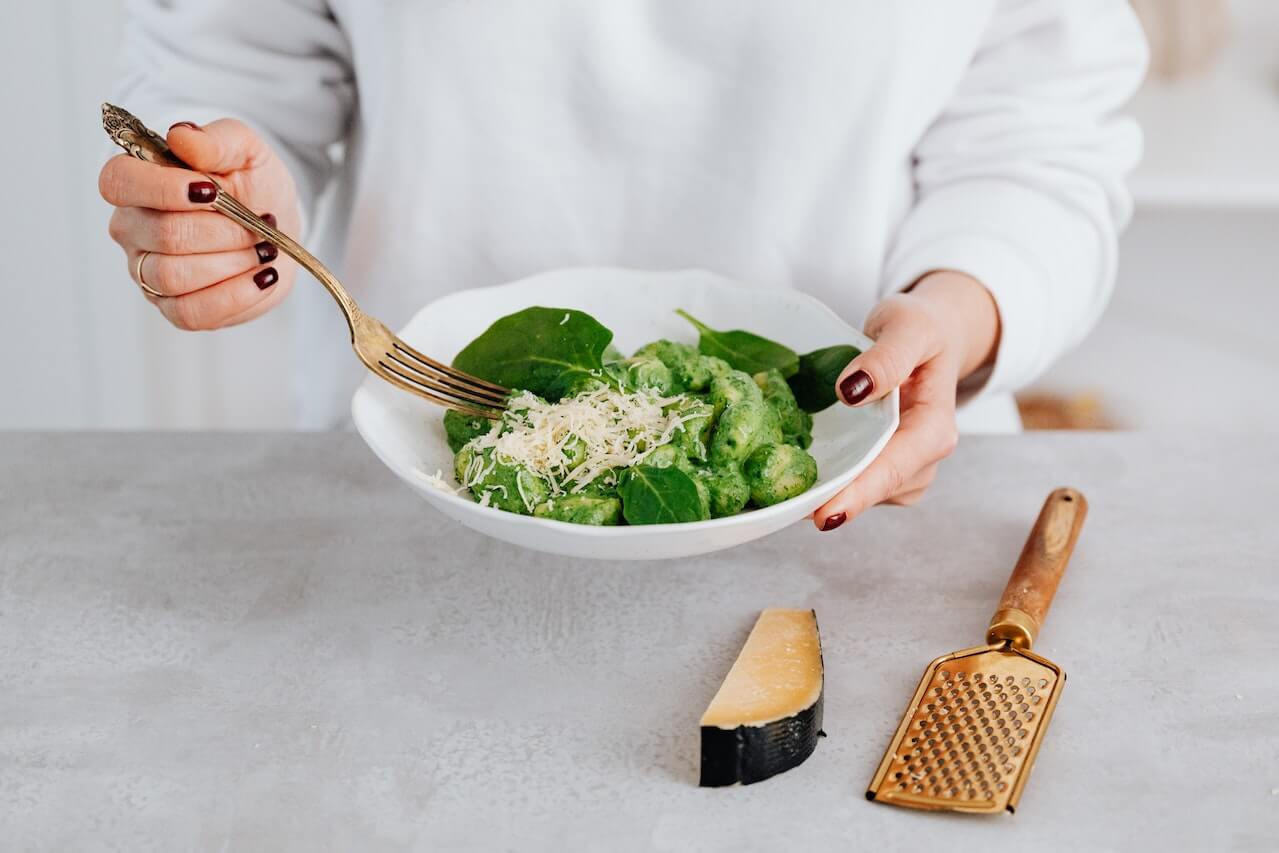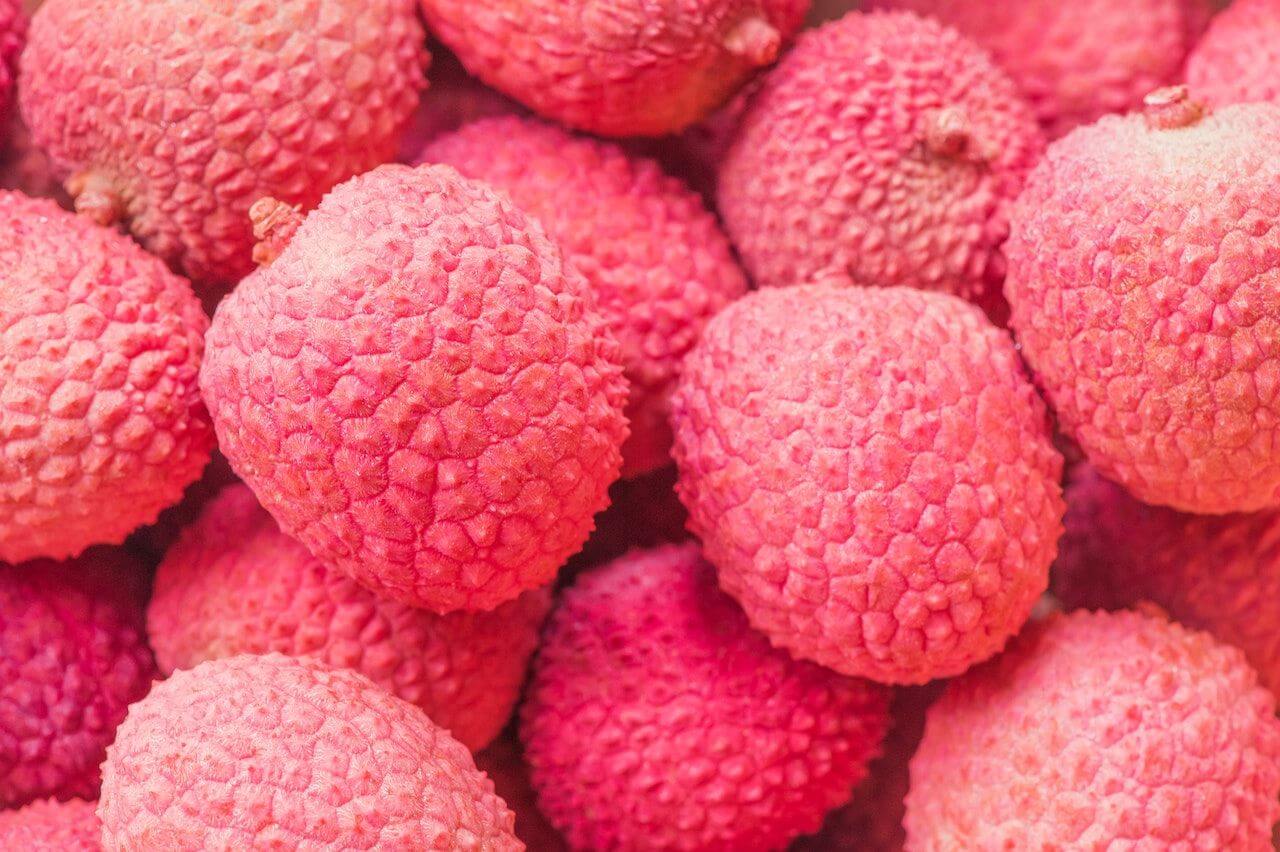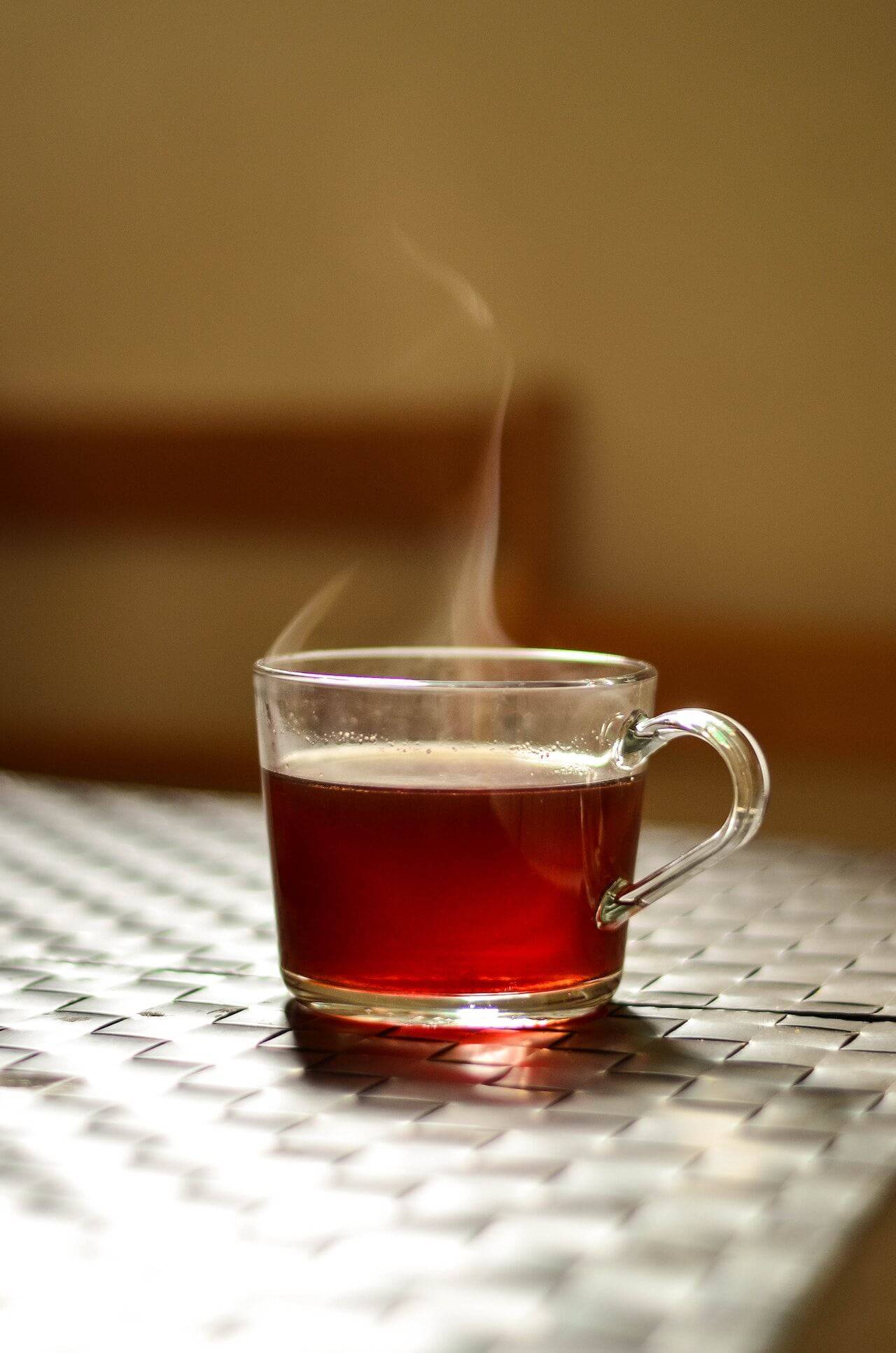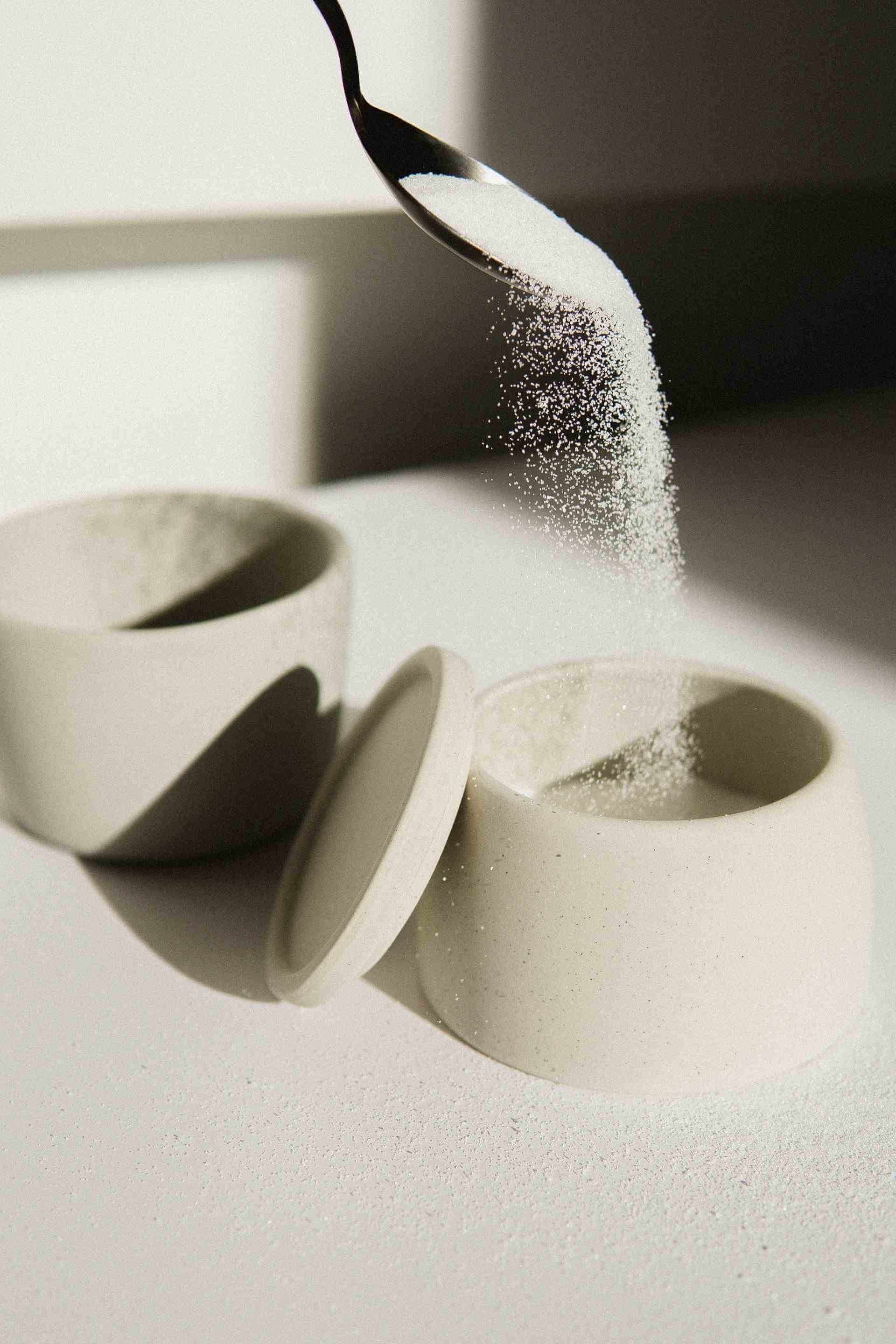Even though ginger shots have recently caught on in the health and wellness space, they have been used for centuries to treat various ailments. Ginger shots are believed to prevent illness, strengthen your immune system, soothe an upset stomach, counter nausea, and support a healthy metabolism.1
While proponents of ginger shots boast about their numerous health benefits, you may wonder whether any evidence supports their effectiveness.
What are Ginger Shots?
{{mid-cta}}
A ginger shot is a small, concentrated beverage made from fresh ginger. To make a ginger shot, juice fresh ginger root or combine fresh, grated ginger with other juices, such as lemon or orange.
You can make a ginger shot in many different ways, and the ingredients vary based on the recipe. Some recipes are made with only fresh ginger juice, while others add other fruit juices and spices like lemon juice, orange juice, turmeric, cayenne pepper, and even manuka honey for sweetness.
Ginger shots can be made at home with a juicer, purchased pre-made, or made to order at juice bars and specialty stores.
Ginger shots can be a little spicy and somewhat unpalatable, so they are made in small servings that can be consumed in one swallow.
Ginger root is rich in antioxidant and anti-inflammatory compounds.2,3 It also has antiviral and antibacterial properties.4,5
10 Ginger Shot Potential Health Benefits
Ginger root may have several health benefits. There is abundant research supporting the benefits of high-dose ginger supplements; however, research on ginger shots is limited. More research is needed to determine whether ginger shots have the same effects.
Given that larger doses appear to have health benefits, ginger shots are most effective when taken daily. Below are ten health benefits of ginger shots.
1. Reduces Inflammation
Ginger is packed with numerous compounds that have antioxidant and anti-inflammatory properties, including gingerols, paradols, sesquiterpenes, shogaols, and zingerone.6,7
Antioxidants protect your body from oxidative stress caused by unstable molecules called free radicals.
Studies in both animals and humans show that ginger extract reduces inflammation in people with health conditions like rheumatoid arthritis, inflammatory gut disease, asthma, and certain cancers.8,9
In addition to ginger's antioxidant and anti-inflammatory properties, other ingredients often included in ginger shots have similar properties, for instance, lemon and turmeric.10,11
2. Lowers Blood Sugar Levels
Some research suggests that ginger may help lower blood sugar levels. Ginger may improve insulin sensitivity and improve HbA1c level, a marker of long-term blood glucose management.12,13
3. Soothes Nausea and Digestive Issues
Ginger is often used as a natural way to treat nausea and other digestive system issues like bloating and indigestion due to the natural enzymes present in ginger.
Research suggests that supplementing with ginger may help increase gastric motility (movement of food through the gastrointestinal tract), improve indigestion, reduce bloating, and ease stomach cramps.14
Ginger is also a safe and effective way to treat nausea and morning sickness in pregnant women. It can also alleviate nausea in patients with cancer or who have had surgery.15,16,17
4. Boosts the Immune System
While there are other things you can do to bolster your immune system, the antioxidants and anti-inflammatory properties in ginger may strengthen the immune system. Inflammation occurs as part of a normal immune response, but chronic inflammation can weaken the immune system over time and increase your chance of getting sick.18
Several studies indicate that ginger may strengthen the immune response and have antibacterial and antiviral properties.4,5
5. Reduces Pain
Ginger’s anti-inflammatory properties, particularly from the compound gingerol, may help reduce pain.
Evidence suggests that gingerol reduces the production of pro-inflammatory agents often associated with pain.19
Don’t expect immediate pain relief when taking ginger as you would when taking an over-the-counter (OTC) pain medication like ibuprofen or acetaminophen. However, research shows that ginger can reduce pain over time as a result of lower levels of chronic inflammation.20

6. Supports Weight Loss
Ginger may aid in weight loss or healthy weight maintenance through various means.
It has been shown to significantly reduce body weight, decrease hunger, and increase the thermic effect of food (the calories burned during digestion).20,21
Of course, ginger is not a magic root that causes weight loss. Ginger should be added to other healthy lifestyle behaviors like eating a balanced diet and exercising regularly.
7. Lowers Cholesterol
Ginger may help lower the risk of developing cardiovascular disease in several ways, including supporting healthy cholesterol levels. Ginger may also improve blood flow and circulation in the body.
As mentioned before, ginger may decrease the effects of chronic inflammation, which often results in plaque formation in the arteries, atherosclerosis, and increased risk of heart disease, stroke, and heart attack.23,24
Ginger shots may also increase the body’s production of nitric oxide. Nitric oxide plays a significant role in regulating blood flow and promoting healthy arteries.
Find out more about other foods that may lower blood pressure and improve metabolic health here.
8. Has Anticancer Properties
Studies suggest that the antioxidant properties of ginger may help protect against certain cancers like pancreatic cancer and ovarian cancer.25,26
9. Prompts Skin Health
Ginger's antioxidant and anti-inflammatory properties may help support skin health. These agents may potentially reduce the formation of wrinkles, blemishes, and other signs of aging. Ginger is also a natural antibacterial agent which may prevent acne or other skin problems.27
10. Reduces Menstrual Pain
One study showed that ginger might be as effective as ibuprofen for relieving menstrual pain and cramps in women. More research is needed to confirm this.28
Ginger Shot’s Side Effects
Ginger shots have many potential health benefits and are generally considered safe for most people; however, there may be some downsides to drinking ginger shots.
- Blood thinning. While the results are mixed, some studies show ginger may have a blood-thinning effect, especially when consumed in larger doses. This may be of concern for people who are taking blood-thinning drugs like Warfarin. People who take blood thinners should limit their intake of ginger and talk to their healthcare provider about potential food-drug interactions.29
- May increase the risk of hypoglycemia. Since ginger may help decrease blood sugar, people who take diabetes medications to manage their blood glucose should avoid taking large doses of ginger, which may increase the risk of hypoglycemia. Studies show that the blood-sugar-lowering effect of ginger occurs when large doses of ginger extract supplements are used, not ginger shots.12
- Allergies. It might go without saying, but people allergic to ginger should not drink ginger shots.30
- Possible digestive distress. Too much ginger can cause nausea and gastric reflux, so be mindful of these possible side effects when adding ginger to your diet.
- Added sugars. You may also want to be mindful of the added sugars in some ginger-shot recipes. Some recipes or pre-made shots add honey or other sweeteners to combat ginger's spicy, bitter taste.
Homemade Ginger Shot Recipe
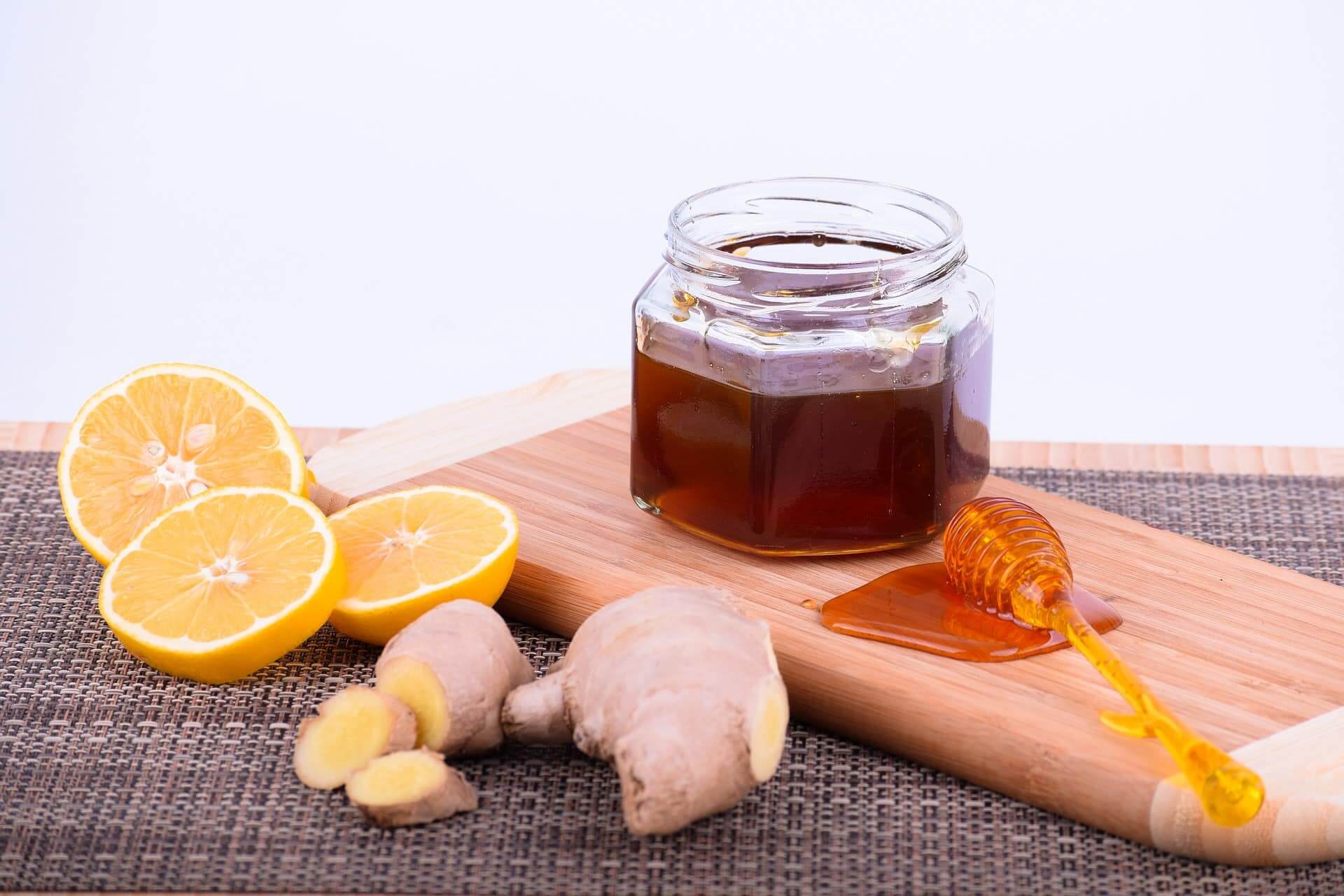
Ginger shots are easily made at home, purchased pre-made, or made to order at juice bars and specialty stores.
Making your own ginger shots right in the comfort of your home is not difficult. You just need a juicer or a blender and a few ingredients.
Here is a basic way to make ginger shots at home:
- Rinse your ginger under running water, then pat dry or air dry.
- Peel off about an inch of the root for a single serving.
- Combine peeled ginger root with 1/4 cup (60 ml) of freshly squeezed lemon juice.
- Blend on high speed until cloudy.
- Pour the mixture through a fine strainer and reserve the juice.
- Enjoy ½ - 2 oz of this ginger mixture daily and store the rest in your refrigerator in an airtight bottle.
Take your ginger shot immediately on an empty stomach and wait 25-30 minutes before consuming anything else.
Drink only 15-30 ml of ginger juice per shot, as anything more may cause heartburn and induce acidity.
If you’re feeling inspired, experiment by adding other ingredients like cinnamon or turmeric. There are a ton of flavor profiles and recipes available online.
If you prefer a sweeter ginger shot, use sweet ingredients like apple juice, orange juice, or honey, but start with only a small amount to limit your sugar intake.
Learn How to Improve Your Health and Habits with Signos’ Expert Advice
Signos CGM empowers you to improve your health by keeping track of your diet, exercise, sleep habits, and blood sugar. Determining where to start can be challenging when you decide to get healthy. A continuous glucose monitor gives you specific information about how your habits are affecting your blood sugar and overall health.
Find out if Signos is a good fit for you by taking a quick quiz.
- Item 1
- Item 2
- item 3
Topics discussed in this article:
References
- Neto CC, Vinson JA. Cranberry. In: Benzie IFF, Wachtel-Galor S, editors. Herbal Medicine: Biomolecular and Clinical Aspects. 2nd edition. Boca Raton (FL): CRC Press/Taylor & Francis; 2011. Chapter 6.
- Mashhadi NS, Ghiasvand R, Askari G, Hariri M, Darvishi L, Mofid MR. Anti-oxidative and anti-inflammatory effects of ginger in health and physical activity: review of current evidence. Int J Prev Med. 2013;4(Suppl 1):S36-S42.
- da Silveira e Sá Rde C, Andrade LN, de Sousa DP. Sesquiterpenes from Essential Oils and Anti-Inflammatory Activity. Nat Prod Commun. 2015;10(10):1767-1774.
- Qorbanpour M, Fahim T, Javandel F, et al. Effect of Dietary Ginger (Zingiber officinale Roscoe) and Multi-Strain Probiotic on Growth and Carcass Traits, Blood Biochemistry, Immune Responses and Intestinal Microflora in Broiler Chickens. Animals (Basel). 2018;8(7):117. Published 2018 Jul 14. doi:10.3390/ani8070117
- Zhou HL, Deng YM, Xie QM. The modulatory effects of the volatile oil of ginger on the cellular immune response in vitro and in vivo in mice. J Ethnopharmacol. 2006;105(1-2):301-305. doi:10.1016/j.jep.2005.10.022
- da Silveira e Sá Rde C, Andrade LN, de Sousa DP. Sesquiterpenes from Essential Oils and Anti-Inflammatory Activity. Nat Prod Commun. 2015;10(10):1767-1774.
- Mashhadi NS, Ghiasvand R, Askari G, Hariri M, Darvishi L, Mofid MR. Anti-oxidative and anti-inflammatory effects of ginger in health and physical activity: review of current evidence. Int J Prev Med. 2013;4(Suppl 1):S36-S42.
- Mahluji S, Ostadrahimi A, Mobasseri M, Ebrahimzade Attari V, Payahoo L. Anti-inflammatory effects of zingiber officinale in type 2 diabetic patients. Adv Pharm Bull. 2013;3(2):273-276. doi:10.5681/apb.2013.044
- Zehsaz F, Farhangi N, Mirheidari L. The effect of Zingiber officinale R. rhizomes (ginger) on plasma pro-inflammatory cytokine levels in well-trained male endurance runners. Cent Eur J Immunol. 2014;39(2):174-180. doi:10.5114/ceji.2014.43719
- Quita SM. Evaluation of lemon fruit extract as an antioxidant agent against histopathological changes induced by cyclophosphamide in the testes of albino mice. Electron Physician. 2016;8(1):1824-1831. Published 2016 Jan 15. doi:10.19082/1824
- Hewlings SJ, Kalman DS. Curcumin: A Review of Its Effects on Human Health. Foods. 2017;6(10):92. Published 2017 Oct 22. doi:10.3390/foods6100092
- Khandouzi N, Shidfar F, Rajab A, Rahideh T, Hosseini P, Mir Taheri M. The effects of ginger on fasting blood sugar, hemoglobin a1c, apolipoprotein B, apolipoprotein a-I and malondialdehyde in type 2 diabetic patients. Iran J Pharm Res. 2015;14(1):131-140.
- Tajik Kord M, Pourrajab F, Hekmatimoghaddam S. Ginger Extract Increases GLUT-4 Expression Preferentially Through AMPK Than PI3K Signalling Pathways in C2C12 Muscle Cells. Diabetes Metab Syndr Obes. 2020;13:3231-3238. Published 2020 Sep 15. doi:10.2147/DMSO.S260224
- Nikkhah Bodagh M, Maleki I, Hekmatdoost A. Ginger in gastrointestinal disorders: A systematic review of clinical trials. Food Sci Nutr. 2018;7(1):96-108. Published 2018 Nov 5. doi:10.1002/fsn3.807
- Saberi F, Sadat Z, Abedzadeh-Kalahroudi M, Taebi M. Effect of ginger on relieving nausea and vomiting in pregnancy: a randomized, placebo-controlled trial. Nurs Midwifery Stud. 2014;3(1):e11841. doi:10.17795/nmsjournal11841
- Bameshki A, Namaiee MH, Jangjoo A, et al. Effect of oral ginger on prevention of nausea and vomiting after laparoscopic cholecystectomy: a double-blind, randomized, placebo-controlled trial. Electron Physician. 2018;10(2):6354-6362. Published 2018 Feb 25. doi:10.19082/6354
- Sanaati F, Najafi S, Kashaninia Z, Sadeghi M. Effect of Ginger and Chamomile on Nausea and Vomiting Caused by Chemotherapy in Iranian Women with Breast Cancer. Asian Pac J Cancer Prev. 2016;17(8):4125-4129.
- Rizzetto L, Fava F, Tuohy KM, Selmi C. Connecting the immune system, systemic chronic inflammation and the gut microbiome: The role of sex. J Autoimmun. 2018;92:12-34. doi:10.1016/j.jaut.2018.05.008
- Mashhadi NS, Ghiasvand R, Askari G, Hariri M, Darvishi L, Mofid MR. Anti-oxidative and anti-inflammatory effects of ginger in health and physical activity: review of current evidence. Int J Prev Med. 2013;4(Suppl 1):S36-S42.
- Rondanelli M, Fossari F, Vecchio V, et al. Clinical trials on pain lowering effect of ginger: A narrative review. Phytother Res. 2020;34(11):2843-2856. doi:10.1002/ptr.6730
- Mansour MS, Ni YM, Roberts AL, Kelleman M, Roychoudhury A, St-Onge MP. Ginger consumption enhances the thermic effect of food and promotes feelings of satiety without affecting metabolic and hormonal parameters in overweight men: a pilot study. Metabolism. 2012;61(10):1347-1352. doi:10.1016/j.metabol.2012.03.016
- Maharlouei N, Tabrizi R, Lankarani KB, et al. The effects of ginger intake on weight loss and metabolic profiles among overweight and obese subjects: A systematic review and meta-analysis of randomized controlled trials. Crit Rev Food Sci Nutr. 2019;59(11):1753-1766. doi:10.1080/10408398.2018.1427044
- Wang Y, Yu H, Zhang X, et al. Evaluation of daily ginger consumption for the prevention of chronic diseases in adults: A cross-sectional study. Nutrition. 2017;36:79-84. doi:10.1016/j.nut.2016.05.009
- Alizadeh-Navaei R, Roozbeh F, Saravi M, Pouramir M, Jalali F, Moghadamnia AA. Investigation of the effect of ginger on the lipid levels. A double blind controlled clinical trial. Saudi Med J. 2008;29(9):1280-1284.
- Akimoto M, Iizuka M, Kanematsu R, Yoshida M, Takenaga K. Anticancer Effect of Ginger Extract against Pancreatic Cancer Cells Mainly through Reactive Oxygen Species-Mediated Autotic Cell Death. PLoS One. 2015;10(5):e0126605. Published 2015 May 11. doi:10.1371/journal.pone.0126605
- Pashaei-Asl R, Pashaei-Asl F, Mostafa Gharabaghi P, et al. The Inhibitory Effect of Ginger Extract on Ovarian Cancer Cell Line; Application of Systems Biology. Adv Pharm Bull. 2017;7(2):241-249. doi:10.15171/apb.2017.029
- Ozkur M, Benlier N, Takan I, et al. Ginger for Healthy Ageing: A Systematic Review on Current Evidence of Its Antioxidant, Anti-Inflammatory, and Anticancer Properties. Oxid Med Cell Longev. 2022;2022:4748447. Published 2022 May 9. doi:10.1155/2022/4748447
- Ozgoli G, Goli M, Moattar F. Comparison of effects of ginger, mefenamic acid, and ibuprofen on pain in women with primary dysmenorrhea. J Altern Complement Med. 2009;15(2):129-132. doi:10.1089/acm.2008.0311
- Marx W, McKavanagh D, McCarthy AL, et al. The Effect of Ginger (Zingiber officinale) on Platelet Aggregation: A Systematic Literature Review [published correction appears in PLoS One. 2015;10(11):e0143675]. PLoS One. 2015;10(10):e0141119. Published 2015 Oct 21. doi:10.1371/journal.pone.0141119
- Gehlhaar P, González-de-Olano D, Madrigal-Burgaleta R, Bartolomé B, Pastor-Vargas C. Allergy to ginger with cysteine proteinase GP-I as the relevant allergen. Ann Allergy Asthma Immunol. 2018;121(5):624-625. doi:10.1016/j.anai.2018.07.013

